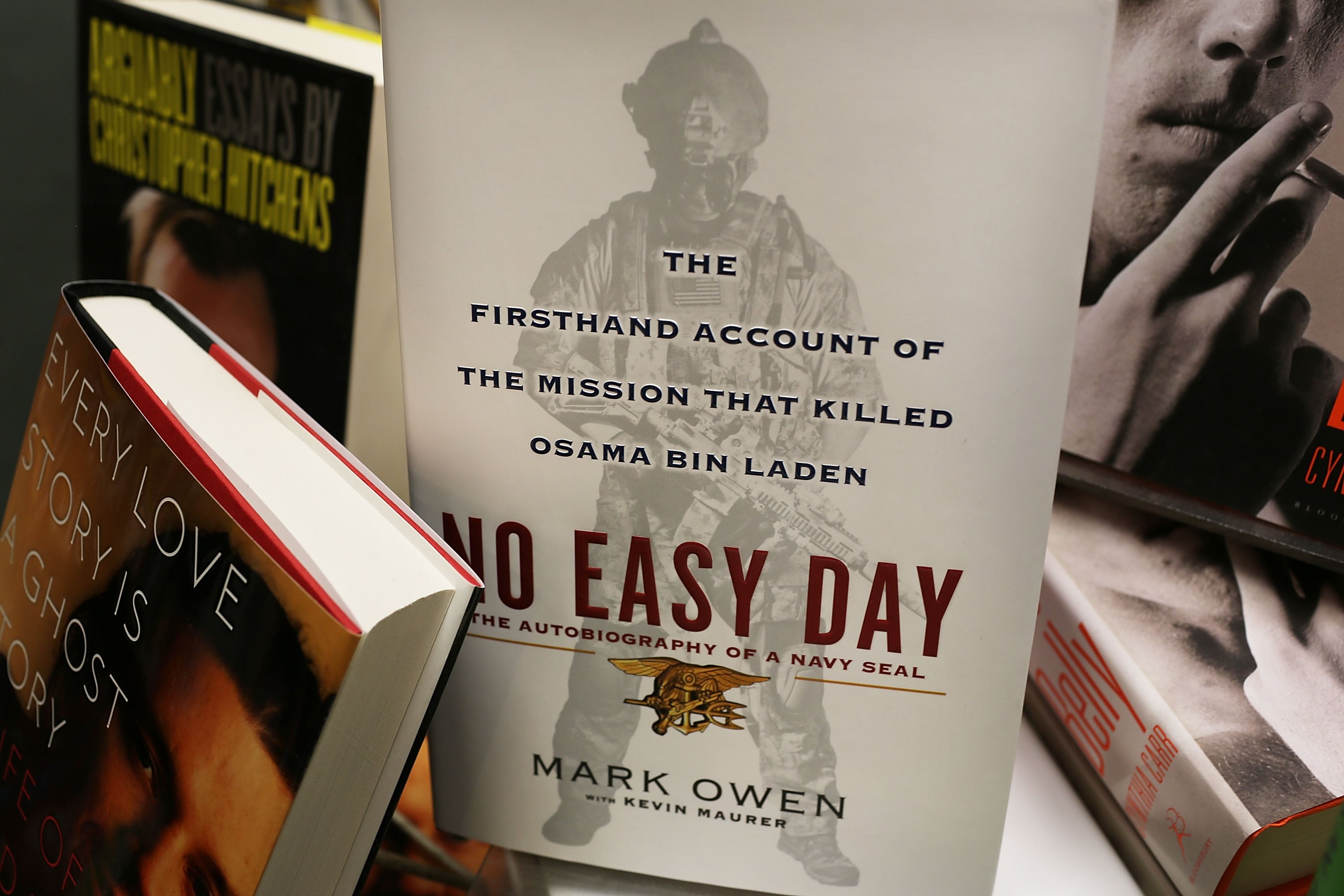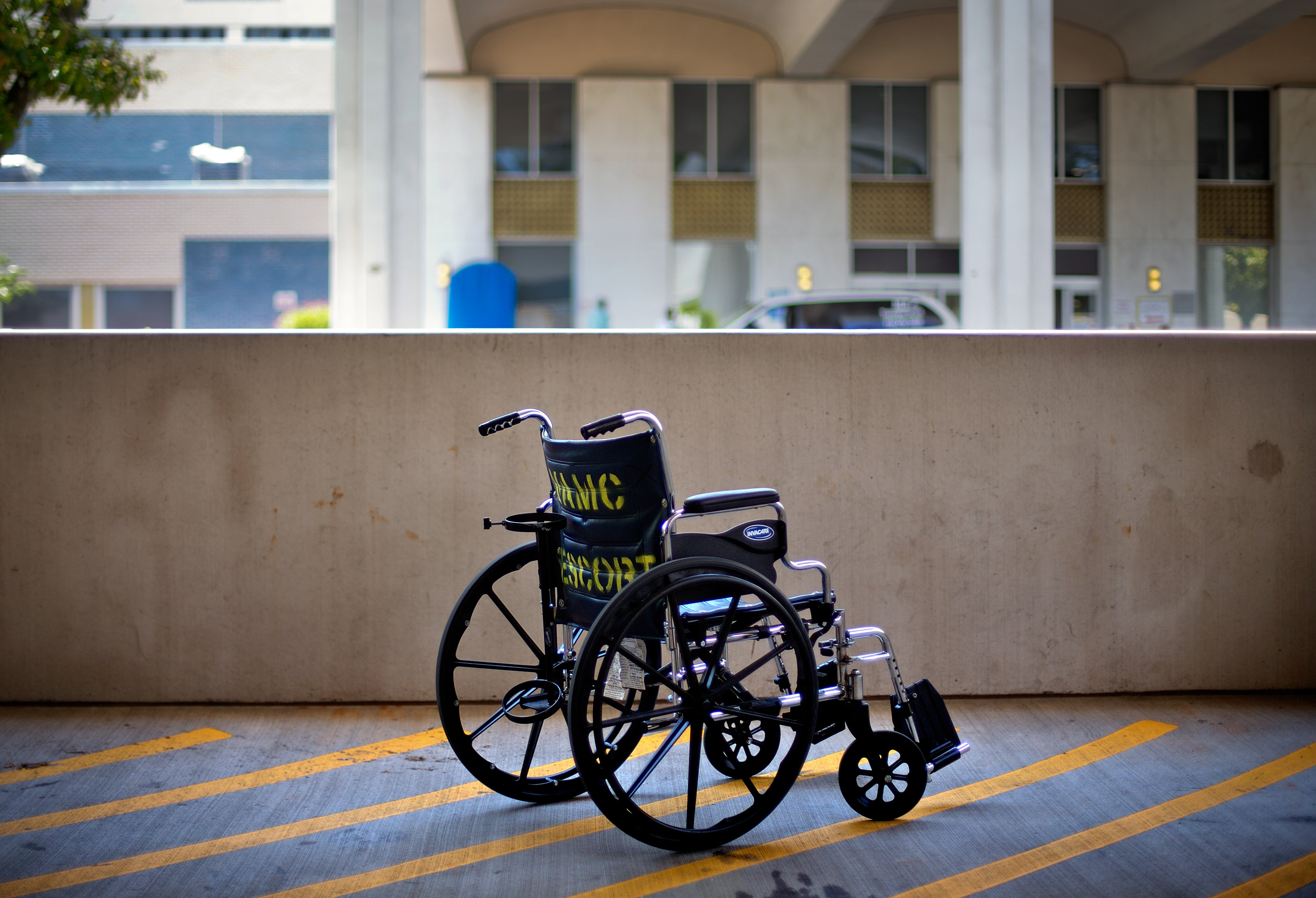The former Navy SEAL whose 2012 book included an account of the Osama bin Laden raid — and is at the center of a lawsuit over millions in lost royalties — now serves as an adviser on a CBS-TV drama about a SEAL unit that’s set to debut this fall.
Matt Bissonnette wrote “No Easy Day” under the pen name Mark Owen and forfeited nearly $7 million in royalties as part of a settlement that ended federal investigations into the book, which was not cleared by the Defense Department prior to publication. He’s “one of several special ops people” involved in “SEAL Team,” CBS Entertainment Communications vice president Beth Haiken said.
Bissonnette sued his former legal team in 2014, alleging he’d been advised not to provide “No Easy Day” to Pentagon officials for review prior to publication. The suit, filed in New York, was thrown out in 2015 but was refiled shortly thereafter in Indiana. Both defendants — the Carson Boxberger law firm and one of its former lawyers, retired Army judge advocate Kevin Podlaski — are based in that state.
A request by the defense for another dismissal was rejected Aug. 21 by a District Court judge in Fort Wayne. The dispute will go to trial next year, said Randy Johnston, who is representing Bissonnette in the case.
“This ruling means that lawyers who commit malpractice when advising military authors can be held accountable in a court of law,” Johnston said via email. “Despite this law firm’s best efforts to prevent him from doing so, Mr. Bissonnette will get the chance to tell his story in court and hold this law firm accountable for their bad advice to him.”

Members of the defendants’ legal team did not respond to multiple phone and email requests for comment. Previous legal filings by the defense stated that Bissonnette lied to his then-lawyers about his service status and other details and was advised to submit the book for review, but ignored that advice.
In the request for dismissal, defense lawyers argued that the case hinges on what the DoD’s pre-publication review would’ve found, and that the court lacked the authority to predict those findings.
Per a 2012 DoD memo, the book “contains classified and sensitive unclassified information.” The memo included instructions to service members about the book: They were allowed to purchase it and not required to store it in the same way other classified materials are handled, but they were “prohibited from using unclassified government computer systems to discuss potentially classified or sensitive contents.”
The Indiana judge ruled that a portion of Bissonnette’s damage claim — about $3 million, on top of lost royalties — did not depend on DoD’s findings, and instead stems from what Johnston described as “lost speaking opportunities, money spent on legal fees during the fight with the government, and damages to his reputation.”
Johnston called Bissonnette’s job with “SEAL Team” a “testament to his character and his ability to, with time, overcome the negative comments of the past.”
Neither his lawyer nor CBS made Bissonnette available for comment.
One of the plot lines discussed in the show’s pilot episode, which is set to air Sept. 27, involves a prospective SEAL whose father wrote a controversial memoir about his special operations service. The idea didn’t come from Bissonnette, said “SEAL Team” executive producer and director Christopher Chulack.
“We didn’t ask him if we could use it,” Chulack said. “I think it just kind of got laid in there as an interesting story. … That wasn’t calculated, the specificity to Mark Owen.”
Kevin Lilley is the features editor of Military Times.





